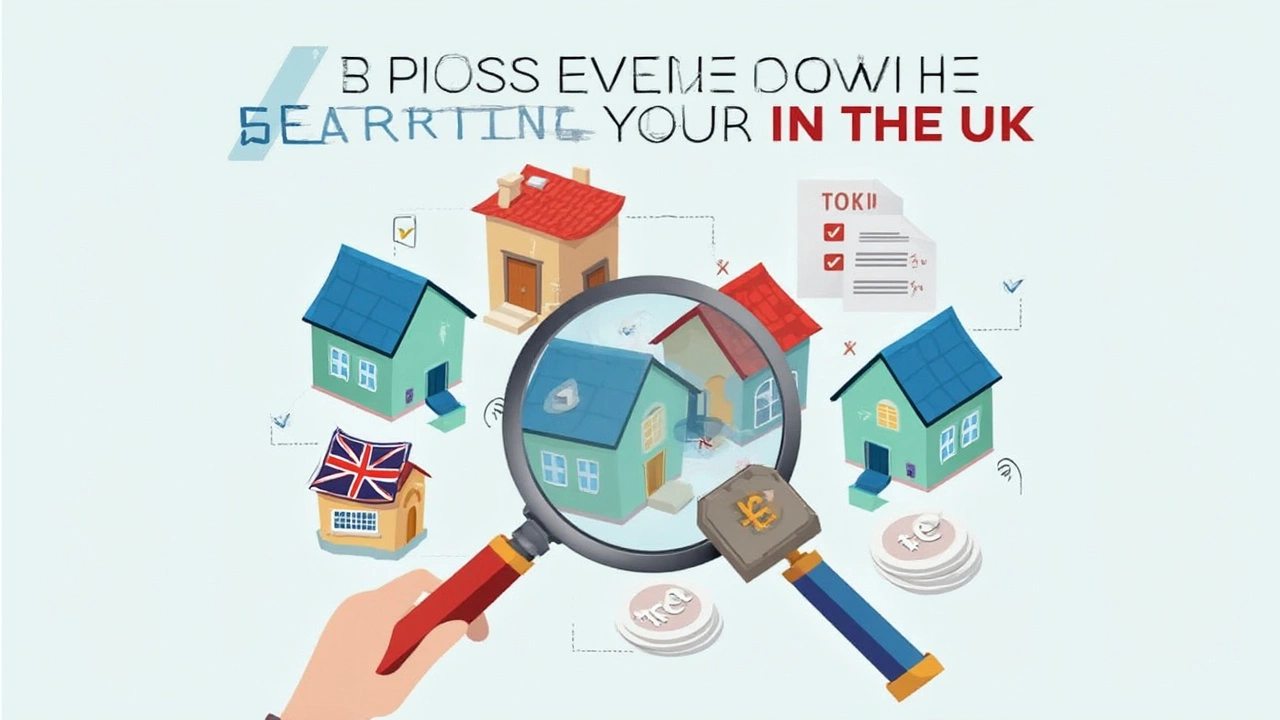Thinking about equity release? You’re not alone—thousands of people tap into their home’s value every year for all sorts of reasons. But where you go to get an equity release can seriously affect how much money you end up with and how much stress you have to deal with later.
Not every bank or company offers the same terms, and the market’s packed with big promises that don’t always add up. Some places might look great upfront but hit you with extra fees or sneaky conditions. And honestly, nobody wants to pay more than they have to or get stuck with a deal that’s hard to escape.
If you just want the cash and don’t care about digging deep, you might be tempted to grab the first offer you find. But a quick online search barely scratches the surface—there are several types of lenders and brokers to consider, each with their own pros and cons.
Knowing the right places to look—and which ones to avoid—can put thousands of extra pounds in your pocket over time. I’ll walk you through what matters, what you can skip, and which steps actually make a difference when picking where to start your equity release journey.
- Why People Consider Equity Release
- Types of Equity Release Providers
- Comparing Offers: Where the Deals Really Are
- Tips for Finding Trusted Advice
- Pitfalls and What to Watch Out For
Why People Consider Equity Release
So, what’s the real driver for people looking into equity release? For most, it comes down to needing extra cash later in life. Your house is probably your biggest asset, but you can’t exactly pay for groceries or a new boiler with bricks. That’s where equity release comes in—it lets you access some of that tied-up value without moving out.
Retirement gaps are a big reason. Plenty of folks reach retirement age and realize their pension and savings just won’t cut it. According to the Equity Release Council, the UK saw nearly 90,000 new equity release plans in 2023—a record year—mostly from over-55s wanting a better standard of living.
| Top Equity Release Triggers | % of People |
|---|---|
| Boosting retirement income | 43% |
| Paying off debts or mortgage | 28% |
| Helping family financially | 18% |
| Home improvements | 11% |
People often use equity release for big-ticket things—clearing an outstanding mortgage, helping out the kids with a deposit on their own home, or making the house more age-friendly. It can even be a way to stay on top of rising living costs or medical bills.
You don’t have to take my word for it. As Jim Boyd, CEO of the Equity Release Council, puts it:
"With the right advice and products, equity release can be a lifeline for older homeowners, letting them enjoy financial freedom and security in retirement."
It’s not only about needs—it’s about flexibility. Having access to your own cash, on your own terms, beats watching your expenses pile up while your home’s value just sits there. That’s the main reason more people each year are checking out their equity release options.
Types of Equity Release Providers
When you start shopping around for an equity release, you’ll run into three main types of providers: banks, building societies, and specialist equity release companies. Let’s break down what each one actually offers, so you’re not stuck guessing which makes sense for your situation.
Banks are usually the first place people look. Big names like Nationwide and Lloyds Bank have dipped their toes into the market, but not all high street banks offer equity release yet. If you’re used to banking with them, it can feel more comfortable, but keep an eye out for higher interest rates or limited product choices.
Building Societies, like the Leeds Building Society, sometimes get involved by partnering with larger providers or offering their own versions. They tend to be more community-focused, but again, their deals might not always be the most competitive.
Specialist equity release companies are where you’ll find the bulk of options. Think firms like Legal & General, Aviva, or Pure Retirement—the names you see discussed in financial forums and reviewed by people who’ve actually gone through the process. These companies focus just on equity release, which means they usually have more flexible deals, better product ranges, and sometimes lower rates. Most of them are members of the Equity Release Council, so they have to stick to strict rules to protect customers.
You’ll also bump into equity release brokers. These aren’t lenders themselves—they’re the middlemen who’ll compare different providers and match you with what fits best. Sometimes, they have access to exclusive deals you can’t find going direct. A good broker can help you dodge a lot of the usual stumbling blocks, but make sure they’re independent and not just pushing one company’s products.
| Provider Type | Known For | Typical Rate Range (APR) |
|---|---|---|
| Banks | Brand familiarity, limited options | 5.5% - 7.0% |
| Building Societies | Community feel, sometimes partner-led | 5.3% - 6.8% |
| Specialist Firms | Dedicated service, wider choice, often better deals | 4.9% - 6.5% |
Bottom line: Each provider has its own flavour, and the best fit for you really depends on how much flexibility you need, how quick you want your cash, and what kind of interest rates you’re willing to accept. Don’t let flashy deals fool you—take time to see what each group actually puts on the table.

Comparing Offers: Where the Deals Really Are
This is where you can either make a smart move or end up with a raw deal. Not all equity release offers are the same, and the differences add up fast. Some providers will offer an interest rate as low as 5.2% (as of late 2024), while others might sneak close to 7%. On a decent-sized release, that’s thousands of pounds over the years.
If you’re just looking at one bank’s website, you’re missing out. The best offers often come from specialist equity release lenders or through brokers who compare deals across the market. These brokers usually don’t charge you up front since they’re paid by the lender, but they can point out options regular high street banks might not even mention.
- Use independent comparison sites—don’t rely on the first search result or a shiny ad.
- Ask for the annual interest rate and check if it’s fixed for life, or if it’s just a teaser rate that goes up later.
- See if the lender is a member of the Equity Release Council. Certified members give you better guarantees, like the “no negative equity” promise.
- Watch for arrangement fees and check if there are early repayment charges. These can sneak up on you.
Brokers can sometimes access exclusive deals you won’t see advertised anywhere. According to the Equity Release Council’s 2024 report, 71% of new plans in the UK were arranged through a broker rather than direct with a lender. That tells you where most people are finding value.
| Source | Typical Interest Rate (%) | Arrangement Fee (£) |
|---|---|---|
| High Street Bank | 6.8 | 995 |
| Specialist Lender | 5.4 | 595 |
| Broker-Arranged | 5.2 | 0-495 |
Don’t get blinded by the headline rate though. Look at the small print — check if you can make payments to keep the interest in check, or if you get any “move house” guarantees. All those details can make one offer way better than another.
Tips for Finding Trusted Advice
Grabbing advice from the first person who pops up online isn’t always smart when it comes to equity release. One bad tip could cost you way more than a bit of cash. Let’s break down how to pick people and places you can actually trust.
First, make sure any adviser or broker you talk to is regulated by the Financial Conduct Authority (FCA). If they’re not, walk away. FCA regulation means they play by strict rules and you’re better protected if something goes wrong.
Next, look for advisers who are members of the Equity Release Council. Members have to follow their own extra code, which usually covers things like making sure you have the right to stay in your home forever and that there’s a “no negative equity” guarantee. Basically, they’re less likely to sell you a bum deal.
- Always check reviews on places like Trustpilot and Google. Loads of positive reviews aren’t a guarantee, but a bunch of one-star rants can be a big red flag.
- Ask how your adviser gets paid. Some are “free” but get a fat commission from the lender, which could make them biased. Others charge you a flat fee, so their advice isn’t tied to which deal you pick.
- Don’t just talk to one adviser. Have quick chats with a few so you can compare what they’re saying. Sometimes, the first answer isn’t the best one.
If stats help you feel more confident, here’s a quick table from a 2024 FCA survey, showing where most people found their equity release adviser:
| Source | % of People |
|---|---|
| Independent adviser | 55% |
| Bank/Building Society | 24% |
| Online Comparison | 14% |
| Referral from friend/family | 7% |
One last tip: Don’t skip the paperwork. Trusted advisers will always insist on a full fact-find, not a quick sales call. If they’re pushing you to sign fast, that’s usually a bad sign.

Pitfalls and What to Watch Out For
It’s easy to fall into traps when looking for the best place to get an equity release. The deals can sound great, but there’s small print and costs that don’t always show up until later.
First, keep an eye on fees. Some equity release lenders hit you with arrangement fees, valuation costs, and lawyers’ bills. These can add up to more than £2,000 in some cases. Don’t just focus on interest rates—ask directly about all the extras before signing anything.
Another biggie is the interest itself. Equity release loans usually come with compound interest, which means you pay interest on your interest. Over ten or twenty years, this can seriously shrink the amount of money your family might get from your home down the line. Here’s what this can look like in real numbers:
| Loan Amount | Rate | Owed after 15 Years |
|---|---|---|
| £50,000 | 6% (compounded) | £120,000+ |
| £75,000 | 6% (compounded) | £180,000+ |
There’s also a catch if you want to move or repay early. Many providers charge what’s called an ‘early repayment charge’—sometimes thousands of pounds—if you decide to pay off your equity release before a certain period is up. This isn’t always obvious from the start, so dig into those terms and conditions.
Not all places that offer financial advice are created equal. Some advisers are tied to just one or two lenders, so you’re not seeing the full market. Others charge high advice fees but add little value. Always check if your adviser is independent and regulated by the Financial Conduct Authority (FCA)—it’s the safest way to know they’re playing fair.
A quick warning about inheritance: the more you borrow (and the longer you live), the less your kids or heirs will inherit. Some plans let you ‘ringfence’ part of your property’s value for your family, but not all do. If inheritance matters, ask about it upfront.
- Watch for providers who aren’t part of the Equity Release Council—it’s a red flag if they don’t follow the Council’s standards.
- If the interest rate isn’t fixed for life, walk away. Variable rates can rocket without warning.
- Don’t skip getting advice from someone who works for you, not the lender.
Bottom line? Be nosey, challenge every cost, and don’t feel pressured to sign anything fast. The right deal is out there—just don’t rush into the wrong one.









